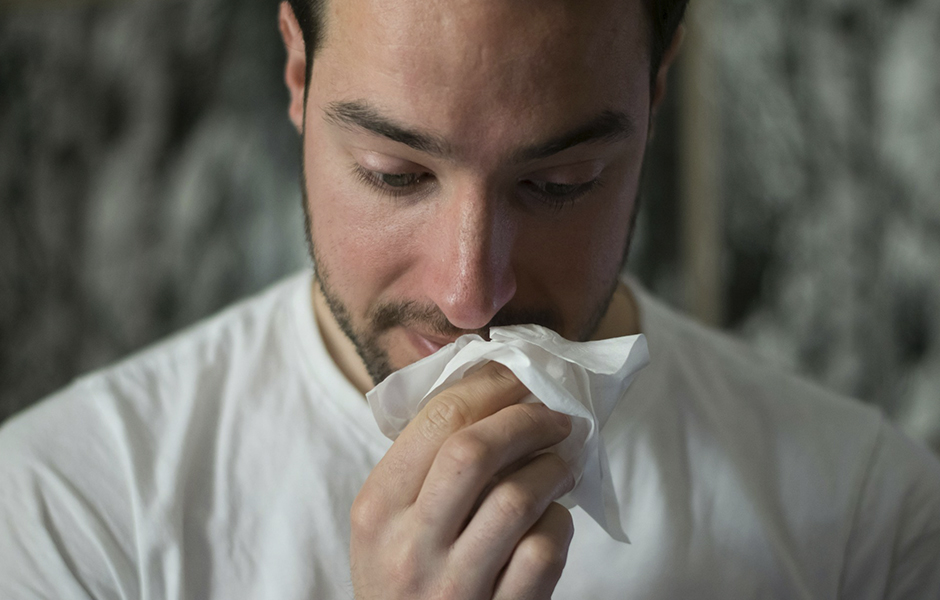Poor control of allergic rhinitis and asthma, especially when they are associated, impairs productivity at work, increases economic costs and significantly reduces quality of life. This is shown by a set of studies carried out by researchers from CINTESIS@RISE and the Faculty of Medicine of the University of Porto (FMUP) and published in The Journal of Allergy and Clinical Immunology: In Practice.
One of the studies, which calculated the annual costs in 40 countries around the world using data from users of a free mobile application (MASK-air), indicates that the impact of rhinitis and asthma is mainly due to a reduction in productivity at work (presenteeism), which is often underestimated, rather than an increase in absenteeism. In other words, people go to work but are not (as) productive due to respiratory and non-respiratory symptoms.
“People with allergic rhinitis can be 40% less productive in weeks with poorly controlled disease, which translates into economic losses of around 90 euros per person per week in Portugal. Patients with allergic rhinitis and asthma, on the other hand, can suffer productivity losses of around 70%, which means economic losses of around 180 euros per person per week,” explain the authors, who have already demonstrated the impact of poorly controlled rhinitis and asthma on school productivity.
Nearly 600,000 adults suffer from asthma in Portugal and seven out of ten do not have the disease under control, according to data from this year’s Epi-Asthma study – Prevalence and characterization of people with asthma, according to the severity of the disease, in Portugal.
Another study by the same group, carried out in several European countries, shows that patients with poorly controlled rhinitis and asthma have a poorer quality of life. After evaluating 7905 users of the app over 82,737 days, the researchers concluded that poorly controlled patients experience a decrease in quality of life in a questionnaire (EuroQol-5D-5L) that assesses five dimensions: mobility, self-care ability, ability to perform activities of daily living, pain/discomfort and depression/anxiety.
Also with regard to quality of life, the researchers from this group point out that poor control of rhinitis is particularly associated with more depression/anxiety and poor control of asthma is more related to worse mobility. When both diseases are uncontrolled, the impact is felt above all in pain/discomfort and limitations in activities.
“Our research highlights the importance of controlling rhinitis and asthma. We hope that these results will be taken into account by policymakers. The next international recommendations for the treatment of allergic rhinitis, which our team is actively working on, will already take this impact into account,” says Rafael José Vieira, researcher at CINTESIS@RISE/FMUP.
A third study, published in Pediatric Allergy and Immunology, points out that teenagers from 10 to 17 years old manage to control these two allergic respiratory diseases better than young adults ( from 18 to 26 years old) and adults ( over 26 years old), even with similar levels of medication adherence. Teenagers have fewer allergies in general, fewer eye allergies and fewer asthma symptoms than the other two age groups.
In total, the records of 965 adolescents (15252 days), 4595 young adults (58161 days) and 15154 adults (258796 days) were analyzed. The differences had never before been studied using digital health tools.
According to Bernardo Sousa Pinto, a CINTESIS@RISE researcher and professor at FMUP, who also signed off on these studies, these conclusions pave the way for future studies to understand how adolescents can better control allergic diseases”.
In addition to Rafael José Vieira and Bernardo Sousa Pinto, the authors of this set of studies were several researchers from FMUP and RISE-Health, including João Fonseca, Luís Azevedo, Ana Margarida Pereira, Diogo Nogueira-Leite, Francisco Rocha Gonçalves, Jorge Rodrigues, among others. MASK-air is a mobile application available free of charge in around three dozen countries.

